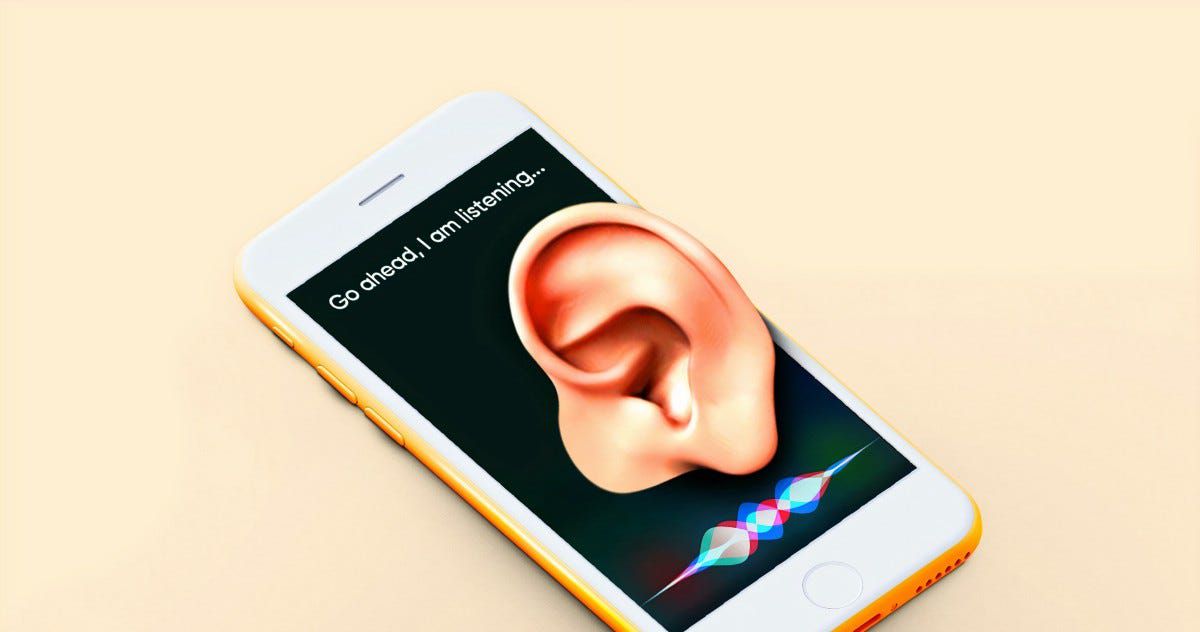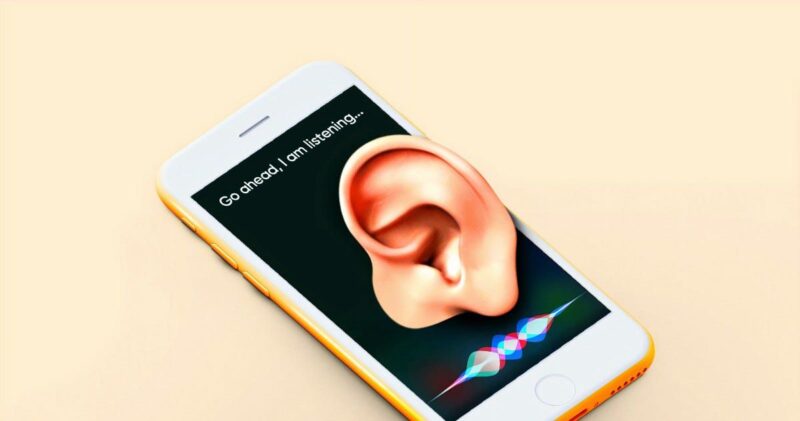
You’ve probably had this happen: you talk about travelling to Dubai or buying new trainers, and moments later, you start seeing related ads on Instagram or Google. It feels suspicious, almost as if your phone is eavesdropping on you. But is it? Can your smartphone really spy on or secretly listen to you?
From voice assistants like Siri and Google Assistant to apps that require microphone access, it’s easy to wonder how much privacy you still control in 2025.
Is Your Smartphone Spying on You?
Technically, your smartphone can listen to you. Modern phones come equipped with high-quality microphones and background permissions that enable apps to collect audio data. But the question is, do they actively do it?
No. There’s no technical evidence that your phone listens to you, except for your phone’s voice assistants.
So, while your phone may not “listen” in the traditional sense, it tracks nearly everything else, from your location and app usage to your online searches and even how long you spend on a social media post.
Why Do You Keep Getting Targeted Ads?
Many people believe their phones secretly record them because they notice personalised ads that seem too accurate. But advertising technology (AdTech) is far more advanced than most people realise.
Companies like Meta, Google, and TikTok don’t need to eavesdrop. They gather massive amounts of data through cookies, device IDs, app permissions, and algorithms that study your digital behaviour.
For instance, if you search for flights, open a travel app, or engage with posts about holidays, the system connects those dots to deliver related ads. So when you later talk about “vacation plans” and see those same ads, it feels like your phone listened, but it’s actually the algorithm at work.
How Many Nigerians Feel About Being Spied On
Across Nigeria, many smartphone users believe their devices listen to them.
Arnold, a student, said: ‘Your phone is always listening, not necessarily to you, but your surroundings… the microphones on your phone can pick up inaudible sound frequencies like from a TV, another phone or PC, even if they are not connected to the web… It’s called ’ultrasonic cross-device tracking’.
For Tobechukwu, an X user: ‘One of the greatest discoveries of my life just happened last week. Do you know that even with your phone locked, “they” are listening to everything being said around your phone?
My brother-in-law came around visiting and was talking about a restaurant we had never heard of. Only to open Google and find restaurant ads.
Their experiences reflect what many users feel: that technology today knows us a little too much.
I also recall when a friend asked me for advice on buying a laptop, and shortly after, she opened Instagram on her phone and started seeing ads for laptops. She went wild, surprised by how it happened.
RELATED: Is AI Dangerous? The Hidden Dangers of AI You Didn’t Think About
What Experts Say About Phone Surveillance
Cybersecurity professionals agree that smartphone privacy is at risk, not because our phones constantly record us, but because of the permissions we grant without reading.
In the HBO documentary Surveilled, Pulitzer Prize-winning journalist Ronan Farrow exposes how advanced spyware technology can secretly access data from ordinary smartphones.
Farrow explains that these programmes, often marketed as tools for tracking criminals or preventing terrorism, can also give governments and private companies access to personal photos, messages, and even live microphone feeds.
However, Adam Mosseri, the head of Instagram, explains that Instagram does not listen to you. In his words:
“We do not listen to you. We do not use the phone’s microphone to eavesdrop on you.” Listening to you through your phone’s microphone “would be a gross violation of privacy” and would drain your phone’s battery, he says.
He also provided a few explanations on how it’s possible to see ads on things you spoke about. According to him, the feeling that your phone is “listening” to your conversations often has more logical explanations.
Sometimes, you may have searched for a related product online or visited a website that shared your data with ad platforms. Other times, you see ads based on your friends’ interests or what people with similar profiles are engaging with.
It’s also possible you saw an ad earlier without realising it, which later influenced your conversation. And occasionally, it’s just a coincidence, the algorithm guessed right by chance.
How Does Your Phone Collect Data?
Without recording your voice, smartphones collect large amounts of information in the background through:
-
App Permissions: Many apps ask for access to your camera, contacts, and microphone, even when it’s unnecessary.
-
Background Activity: Apps can run quietly in the background, gathering location or usage data.
-
Voice Assistants: Siri, Alexa, and Google Assistant always “listen” for wake words like “Hey Siri” or “OK Google.” These systems store short snippets of conversations for “improvement,” which can sometimes be reviewed by humans.
-
Wi-Fi and Bluetooth Tracking: Some services track nearby networks to map your location, even when GPS is off.
How to Check If Your Phone Is Listening
If you’re worried your phone might be secretly listening, there are simple ways to find out and protect yourself:
-
Check Microphone Permissions: Go to Settings → Privacy → Microphone, and see which apps have access. Disable those that don’t need it.
-
Turn Off Voice Activation: You can turn off “Hey Siri” or “OK Google” if you don’t use voice assistants often.
-
Limit Ad Tracking: On Android or iOS, you can reset your advertising ID and limit tracking to reduce personalised ads.
-
Review App Activity: Both Apple and Android phones now show indicators (a small green or orange dot) when your camera or microphone is in use.
So, Are Our Phones Spying on Us?
In simple terms, your phone isn’t secretly recording every word you say. But it doesn’t have to; it already knows enough through your digital footprint. Every click, search, and app you use adds to your online profile, which is then used for marketing, analytics, and AI training.
The real concern isn’t hidden microphones, it’s invisible data trails.
You may not be able to completely stop your phone from tracking you, but you can take steps to minimise its tracking. Control app permissions, be mindful of what you share online, and remember that privacy today is not about hiding, it’s about managing your exposure.








